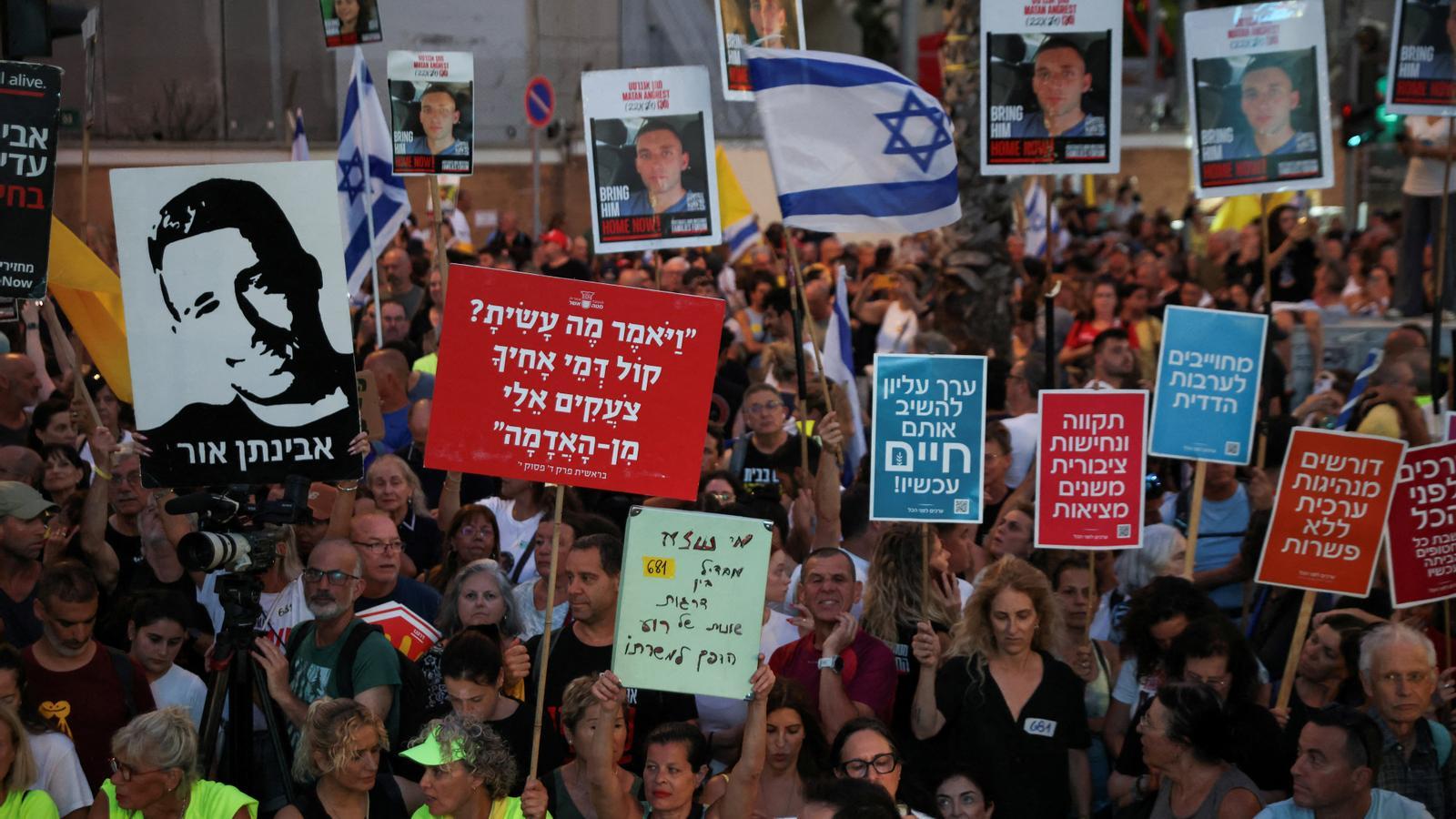Netanyahu runs out of excuses for refusing to accept a ceasefire in Gaza.
The Israeli government is considering rejecting the proposal for a truce in the Gaza Strip accepted by Hamas, which guarantees many of its demands.

BarcelonaBenjamin Netanyahu's government has said it is studying the latest ceasefire proposal put forward by Egypt and Qatar—and accepted by Hamas—in which the Palestinian group pledged to release half of the hostages it is holding in the Strip in exchange for a 60-day truce. This is the official position. However, the Prime Minister's Office asserted that Israel will only accept a comprehensive agreement that includes the release of all 50 hostages, although Qatar asserted that the plan was exactly identical to the truce proposal made by the United States to halt the fighting and to the one Tel Aviv had endorsed.
"Israel's policy is consistent and has not changed. Israel demands the release of the 50 hostages in accordance with the principles established by the cabinet to end the war. We are in the final decisive phase of Hamas's struggle, and we will not leave any hostages behind," the anonymous source said.
The proposal put forward this time by the mediating countries, with the support of the United States, includes the release of 200 Palestinian prisoners held in Israel in exchange for 10 live hostages and 18 deaths in Gaza. That is, half of the 50 hostages still in the Strip, of which 20 are still alive. It would also entail Israel's commitment to withdraw troops from the north and center of the enclave, and the entry of humanitarian aid to mitigate the serious humanitarian crisis suffered by the population.
Diplomatic efforts to stop the war resumed last week after Israel announced its intention to launch a new offensive to take control of Gaza City, home to nearly 1 million Palestinians, and stepped up its aerial bombing campaign. On Monday, when it became known that Hamas had accepted the ceasefire proposal, the two ultra-right ministers in the governing coalition rejected it outright. Israeli Defense Minister Israel Katz reacted to the announcement by saying that the only reason Hamas agreed to return to the negotiating table was Israel's threat to conquer Gaza City. "The blood of our soldiers is not in vain. We must go all the way. Destroy Hamas," he exclaimed. Similarly, Finance Minister Bezalel Smotrich argued that "Hamas is under great pressure" due to the plan to conquer Gaza "because it understands that this will eliminate it and put an end to history."
For its part, according to the newspaper The Times of Israel, behind closed doors, Netanyahu appeared to have dismissed the proposal and had assured that his army's operation to take control of the largest city in Gaza and force the evacuation of the population to the south was continuing. "We can clearly see that Hamas is under immense pressure," Netanyahu said, according to the same media.
If the predictions are ultimately confirmed and Israel ends up rejecting the proposal, the Israeli prime minister will face a new wave of reproaches from organizations of families of the hostages, who Nearly a million Israelis gathered in Tel Aviv this Sunday at a demonstration demanding a ceasefire. The largest of these, the Missing Families and Hostages Forum, demanded this Tuesday that Netanyahu sit down to negotiate this draft: "The people will not allow the prime minister to torpedo another agreement."
In this sense, the prime minister's strategy to reject the ceasefire without disappointing Washington and at the same time trying to navigate internal pressures is—as he has done on other occasions—to demand unacceptable demands that leave no room for the negotiating team to work.
